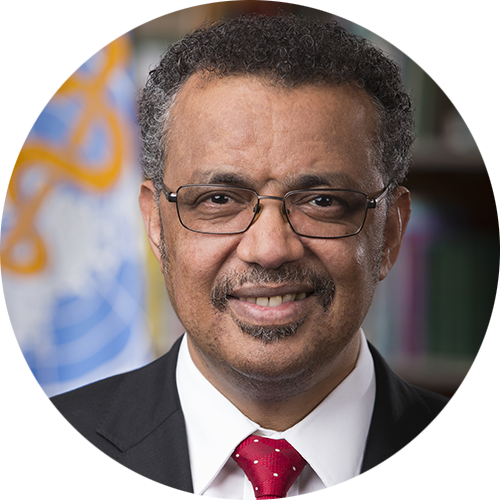In the official video address to the 12,000 delegates of the 2024 World Sepsis Congress Spotlight: "Unmet Need in Sepsis Diagnosis and Therapy," Dr. Tedros Adhanom Ghebreyesus, Director-General of the World Health Organization (WHO), delivered a powerful message:
“Nobody should die from sepsis.”
In his statement to the Congress delegates from 180 countries Dr. Tedros underscored the critical need for unified action against sepsis, which remains a cause of 1 in every 5 deaths and affects 48.9 million children, women, and men worldwide annually.
He specifically highlighted that sepsis is mostly preventable. Indeed, millions of sepsis-related deaths can be prevented through effective infection prevention and control, early diagnosis, and time-sensitive antimicrobial and other therapies.
The Global Sepsis Alliance is grateful to the Director-General of WHO for his unwavering support in the global fight against sepsis.
The Alliance looks forward to stronger concerted collaboration with WHO, Member States, and multiple stakeholders for reinvigorating the global action on sepsis and launching the 2030 Global Agenda for Sepsis, as the first comprehensive multi-year strategy.
We will continue efforts for stronger positioning of sepsis in the mainstream of the global health architecture, national health policies, and programs, and scaling up the implementation of the 2017 WHA70.7 Resolution on Sepsis.
About WORLD SEPSIS CONGRESS AND WSC SPOTLIGHT
BRINGING KNOWLEDGE ABOUT SEPSIS TO ALL PARTS OF THE WORLD
In 2016, the Global Sepsis Alliance established World Sepsis Congress, a free online congress covering all aspects of sepsis. In 2017, the GSA established World Sepsis Congress Spotlight, a smaller satellite congress shining a spotlight on one particular issue of sepsis.
This years’ WSC Spotlight featured 9 distinctive sessions, in which globally renowned clinicians, researchers, experts, and thought leaders covered the need for early diagnosis and treatment of sepsis in surgical patients, data, AI, and predictive modeling in sepsis, how hypervolemia increases the mortality rate in sepsis, the role of biomarkers, detecting sepsis in ventilated patients, pediatric sepsis, including the new ‘Phoenix Criteria’, as well as personalized approaches to sepsis management.
All sessions have been recorded and will be available on our YouTube Channel and as a podcast, starting with the Opening Session on Tuesday, May 7, 2024.

















